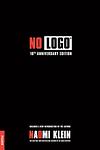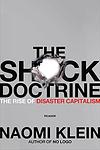The Greatest Canadian, Argentinian "Nonfiction, Political" Books of All Time
Click to learn how this list is calculated.
This list represents a comprehensive and trusted collection of the greatest books. Developed through a specialized algorithm, it brings together 305 'best of' book lists to form a definitive guide to the world's most acclaimed books. For those interested in how these books are chosen, additional details can be found on the rankings page.
Genres
The "Political" category of books encompasses works that explore the theory, practice, and history of government and politics. These books may cover topics such as political ideologies, political systems, political institutions, political movements, and political leaders. They may also examine the relationship between politics and other areas of society, such as economics, culture, and international relations. Political books can be both informative and thought-provoking, offering readers insights into the complexities of the political world and the challenges of governing in a democratic society.
Countries
Date Range
Reading Statistics
Click the button below to see how many of these books you've read!
Download
If you're interested in downloading this list as a CSV file for use in a spreadsheet application, you can easily do so by clicking the button below. Please note that to ensure a manageable file size and faster download, the CSV will include details for only the first 500 books.
Download-
1. Facundo by Domingo Faustino Sarmiento
"Facundo" is a socio-political critique and historical account of Argentina during the first half of the 19th century. The book examines the life of the gaucho, Facundo Quiroga, who becomes a powerful and ruthless warlord, illustrating the destructive effects of caudillismo (military dictatorship) on society. The author uses Quiroga's life to delve into broader themes such as the struggle between civilization and barbarism, the need for education, and the dangers of unchecked political power.
The 709th Greatest Book of All Time -
2. The Great Transformation by Karl Polanyi
The book in question is a seminal work in economic and social history that examines the development and impact of the modern market economy on global societies. It argues that the rise of market capitalism in the 19th century fundamentally transformed social structures and human relationships, with the commodification of land, labor, and money turning them into tradable goods. This transformation led to social dislocation and crises, prompting a counter-movement for social protection and the rise of the welfare state. The author challenges the idea that the market economy is a natural and inevitable form of social organization, instead presenting it as a constructed system with profound effects on the fabric of society.
The 1403rd Greatest Book of All Time -
3. No Logo by Naomi Klein
This book explores the negative effects of corporate branding and globalization. It critiques the marketing strategies of large corporations, arguing that they exploit workers and manipulate consumers. The author also discusses how these corporations have a significant influence on culture and public space. The book suggests that consumer activism and grassroots movements can serve as effective counter-forces to corporate power.
The 3167th Greatest Book of All Time -
4. The Shock Doctrine: The Rise of Disaster Capitalism by Naomi Klein
This book explores the concept of "disaster capitalism", the idea that global capitalism thrives on disaster and chaos. The author argues that free market policies are often pushed through while countries are reeling from wars, natural disasters, or economic crises. She provides a historical analysis of these events, from Chile in the 1970s, to Russia in the 1990s, to the war in Iraq, demonstrating how governments and corporations exploit these periods of shock to implement economic reforms that would otherwise be rejected.
The 5000th Greatest Book of All Time -
5. Prisoner Without A Name, Cell Without A Number by Jacobo Timerman
The book is a harrowing memoir of a journalist who was detained and tortured by the Argentine military government during the late 1970s. It vividly recounts his experiences of imprisonment, the brutal interrogation techniques he endured, and his observations on the political and social turmoil of Argentina under a repressive regime. The narrative not only exposes the personal anguish and struggle of the author but also serves as a critical examination of the impact of totalitarianism on society and the perilous state of human rights under such governance.
The 5322nd Greatest Book of All Time -
6. Episodes Of The Cuban Revolutionary War by Che Guevara
The book is a detailed account of the Cuban Revolutionary War, written by one of its key leaders. It provides an insightful narrative of the guerrilla warfare tactics and major battles that took place from 1956 to 1958, leading to the overthrow of the Batista regime. Through a series of essays and firsthand accounts, the author, a prominent revolutionary figure, shares his experiences, strategic thoughts, and the ideological convictions that drove the rebels' quest for Cuba's liberation. The work not only chronicles military engagements but also reflects on the social and political implications of the revolution.
The 5517th Greatest Book of All Time -
7. The Warrior's Honor: Ethnic War and the Modern Conscience by Michael Ignatieff
The book explores the moral and ethical challenges faced by modern societies when confronted with ethnic conflicts and wars. It delves into the complexities of humanitarian intervention, the role of the media in shaping public perception, and the struggle to reconcile the principles of human rights with the brutal realities of ethnic violence. Through a series of case studies and philosophical reflections, the author examines the tension between the universal claims of morality and the particular loyalties of kinship and nationality, questioning the capacity of moral conscience to mediate in conflicts where deep-seated cultural and ethnic animosities are at play.
The 6657th Greatest Book of All Time -
8. Dark Matters by Simone Browne
"Dark Matters" is a critical examination of how race and surveillance have intersected throughout history, particularly within the context of blackness. The book delves into the ways in which surveillance practices, both historical and contemporary, are rooted in racial discrimination and how these practices have served to enforce boundaries of social control. By exploring a range of topics, from the branding of slaves in the 18th century to modern-day policing and biometric technologies, the book challenges readers to consider the pervasive nature of surveillance and its disproportionate impact on black communities. Through this lens, the author reveals the deep-seated connections between visibility, race, and the monitoring of bodies in public and private spaces, urging a reevaluation of the role of surveillance in perpetuating systemic racial inequalities.
The 9237th Greatest Book of All Time
Reading Statistics
Click the button below to see how many of these books you've read!
Download
If you're interested in downloading this list as a CSV file for use in a spreadsheet application, you can easily do so by clicking the button below. Please note that to ensure a manageable file size and faster download, the CSV will include details for only the first 500 books.
Download





